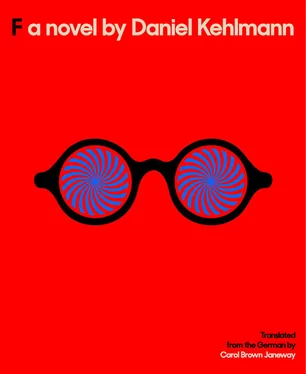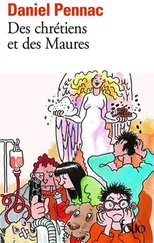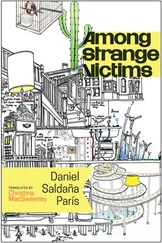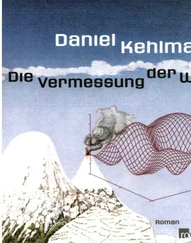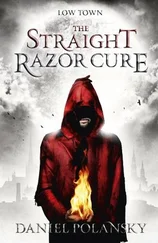The problem was the situation, it was so horribly bright and also really hard to stand on one leg in front of all those people, it took all your concentration to keep your balance. It wasn’t his memory that was letting him down, it was his voice. It stuck in his throat and wouldn’t come out. Whatever anyone asked him now, he’d have to stay silent.
“How old are you?”
“Thirteen,” he heard himself say. So by sheer will he could do it.
“What’s your mother’s name?”
“Katharina.”
“Your father?”
“Arthur.”
“Is that the gentleman down there?”
“Yes.”
“And what’s your name?”
He said nothing.
“You don’t know it?”
Of course he knew it. He could feel the contours of his name; he knew where it was in his memory; he felt it, but it seemed to him that the person this name belonged to was not the person Lindemann was asking, so none of this really hung together, and it was completely irrelevant when set against the fact that he was on one leg on a stage with an itchy nose, his hands squeezed together, and he needed to go to the toilet. And then the name came back to him again, Ivan of course, Ivan, he drew breath and opened his mouth …
“And you?” Lindemann asked the boy next to him. “Do you know your name?”
Now I’ve got it, Ivan wanted to shout, now I can say it! But he stayed silent, it was a relief that the whole thing was no longer about him. He heard Lindemann ask the other two something, he heard them answer, he heard the audience laugh and clap. He felt drops of sweat running down his forehead, but he couldn’t wipe them away, it would have been embarrassing to move his hands now when they all thought he was in a trance.
“It’s already over,” said Lindemann. “Not so bad, was it? Separate your hands, stand on both legs, you know your names again. It’s over. Wake up. It’s over.”
Ivan lowered his foot. Of course it was easy, he could have done it the whole time.
“It’s okay,” said Lindemann softly, putting a hand on his shoulder. “It’s over.”
Ivan went down the steps behind the other two. He would have liked to ask them what it had been like for them, what they’d seen and thought, how it felt to be genuinely hypnotized. But he was already back in the third row, people made room for him, he pushed past their knees, and dropped into his seat. He let out a breath.
“How was it?” whispered Martin.
Ivan shrugged.
“Do you remember, or have you forgotten it all?”
Ivan wanted to answer that of course he hadn’t forgotten anything and that the whole thing had been a silly trick, but then he realized that the people in the rows in front of them had turned around. They weren’t looking at the stage, they were looking at him. He glanced around. The whole theater was looking at him. Lindemann had lied. It wasn’t over.
“Is that him?” asked Lindemann.
Ivan stared up at the stage.
“Your father. Is that him?”
Ivan looked at Arthur, looked at Lindemann, looked back at Arthur. Then he nodded.
“Would you like to join me, Arthur?”
Arthur shook his head.
“You think you don’t want to. But you do. Believe me.”
Arthur laughed.
“It doesn’t hurt, it isn’t dangerous, you might even like it. Give us the pleasure.”
Arthur shook his head.
“Not at all curious?”
“It doesn’t work on me,” called Arthur.
“Perhaps not. Maybe that’s right, it can happen. All the more reason for you to come up here.”
“Take someone else.”
“But I want you.”
“Why?”
“Because that’s what I want. Because you believe you don’t want to.”
Arthur shook his head.
“Come!”
“Go on,” whispered Eric.
“They’re all looking at us,” whispered Ivan.
“So what?” said Arthur. “Let them look. Why do children find everything embarrassing?”
“Let’s all say it together!” called Lindemann. “Send him up here to me, show him, clap if you think he should come. Clap loud!”
Wild applause erupted, with stamping of feet and calling, as if nothing were more important to everyone than getting Lindemann’s wish granted, as if none of them could imagine anything more satisfying than seeing Arthur up on stage. The noise achieved a crescendo as more and more voices joined in: people were clapping and yelling. Arthur didn’t budge.
“Please!” cried Eric.
“Please go,” said Martin. “Please!”
“Only for you,” said Arthur, and got to his feet. He worked his way through the howling crowd to the center aisle, walked to the steps, and climbed them. Lindemann made a rapid gesture and the racket ceased.
“You’re going to have bad luck with me,” said Arthur.
“Possibly.”
“It really doesn’t work.”
“That nice boy. That was your son?”
“I’m sorry. I’m the wrong person. You want someone who feels awkward at first, and then chats with you and tells you things about himself, so that you can turn him into a joke and make everyone laugh. Why don’t we skip all that? You can’t hypnotize me. I know how it works. A little pressure, a little curiosity, the need to belong, the fear of doing something wrong. But not with me.”
Lindemann said nothing. The lenses of his glasses glinted under the spotlights.
“Can they hear us?” Arthur pointed to the three motionless bodies.
“They’re busy with other things.”
“And that’s what you’d like to do with me too? Give me another life?”
Ivan wondered how his father was managing to let them all understand every word he said. He had no microphone and he was speaking softly, yet he was completely audible. He stood there calmly as if he were alone with the hypnotist and allowed to ask whatever he wanted. Nor did he seem to be absentminded anymore. He seemed to be enjoying himself.
Lindemann, on the contrary, looked unsure of himself for the first time. He was still smiling, but frown lines had appeared on his forehead. Gingerly he took off his glasses, put them on again, took them off once more, folded them up, and pushed them into his breast pocket behind the green handkerchief. He raised his right hand and held it over Arthur’s forehead.
“Look at my hand.”
Arthur smiled.
The sound of giggling spread through the audience. Lindemann grimaced for a moment. “Look at my hand, look at it, look at my hand. Just my hand, nothing else, just at my hand.”
“I don’t notice anything.”
“Nor should you.” Lindemann sounded agitated. “Just look! Look at my hand, my hand, nothing else.”
“You’re focusing my consciousness on itself, aren’t you? That’s the trick. My attention is focused on my own attention. A slipknot, and suddenly, it’s impossible …”
“Are those your sons down there?”
“Yes.”
“What are their names?”
“Ivan, Eric, and Martin.”
“Ivan and Eric?”
“The Knights of the Round Table.”
“Tell us about yourself.”
Arthur said nothing.
“Tell us about yourself,” Lindemann said again. “We’re all friends here.”
“There’s not much to say.”
“What a pity. How sad, if true.”
Lindemann lowered his hand, bent forward, and looked at Arthur in the face. Everything was very quiet, the only sound was a faint hiss, perhaps from the air-conditioning, perhaps from the electrical current to the spotlights. Lindemann took a step back, a board creaked, one of the sleeping bodies groaned.
“What do you do for a living?”
Arthur said nothing.
“Or don’t you have a job?”
“I write.”
“Books?”
“If what I write got printed, they’d be books.”
Читать дальше
